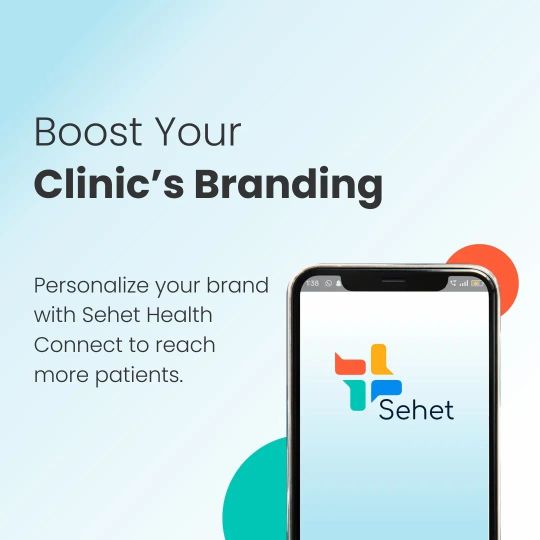#Healthcare Providers
Text

The thing is people lie to healthcare providers ALL THE TIME. Whether they mean to be deceptive or are just not comfortable with the reality of their circumstances. We know if you’ll admit to drinking 2 beers at night it is certainly a six pack. We know if you admit to smoking weed occasionally you are a daily wake & baker.
Utterly chilling. This healthcare professional (and others in this same comments section) are all claiming pregnancy testing people against their will and in secret is the right thing to do to protect the health of all the poor little ladies who are lying about everything from their drinking to their sex lives.
This patronizing attitude is exactly and literally why I only trust the one single doctor who gave me a hysterectomy after 11 years of trying to convince doctors that I was in unbearable agony.
Jesus. The idea that every healthcare provider I see probably assumes I'm pathologically lying to them about every single aspect of my health is horrifying.
#healthcare#health#medical practices#medical sexism#sexism#woodsfae#Medical field#medical care#Healthcare providers#image id#Described
6 notes
·
View notes
Text
Non-Emergency Medical Transportation (NEMT) addresses significant healthcare challenges individuals face. For those who cannot drive or do not have access to reliable transportation, getting to medical appointments can be incredibly difficult. NEMT services ensure these individuals can access the healthcare they need. As providers of transportation services in Georgia, we have identified several key challenges that NEMT effectively addresses.
0 notes
Text
Highland Clinic

Highland Clinic is a comprehensive healthcare provider in Shreveport, LA, offering a wide range of medical services. Specialties include internal medicine, orthopaedics, oncology, allergy services, audiology, radiology, and diagnostic laboratory services. The clinic also features an infusion center and vein treatment options, aiming to provide top-quality, patient-centered care. The team consists of experienced healthcare professionals dedicated to improving the health and well-being of their patients.
Contact Info:
Address: 1455 E Bert Kouns Industrial Loop, Shreveport, LA 71105
Phone: +13187984500
Website URL: https://www.highlandclinic.com/
Map Link:
https://maps.app.goo.gl/r2z6dPetSUnnrjaL8
Follow On:
https://www.facebook.com/HighlandClinicAPMC/
https://www.instagram.com/highlandclinic/
https://www.youtube.com/channel/UCYABt_nS72u-9NyAg4Pp-CA
1 note
·
View note
Text
Basic Life Support (BLS) is a fundamental skill for all healthcare professionals. At ST Institute, our healthcare training in Rosemead, California, equips students with the essential life-saving techniques required to respond effectively in emergency situations. This comprehensive training includes CPR, AED use, and recognizing the signs of cardiac arrest, ensuring that our graduates are prepared to save lives in critical moments.
0 notes
Text
Telemedicine has significantly changed the landscape of healthcare, particularly in mental health. For individuals with bipolar disorder, our telemedicine in Portland, Oregon, offers an accessible and effective way to receive ongoing treatment. This approach allows patients to connect with healthcare providers from the comfort of their homes, removing travel barriers and time constraints. Telemedicine makes it easier for those with bipolar disorder to maintain regular check-ins and therapy sessions, which are essential for managing the condition.
0 notes
Text
Free eBook! AI Virtual Assistants: The Future of Patient Intake.
#Healthtech experts#Caregivers#Intake process#Voice AI#Administrative burden#Patient intake challenges#Healthcare providers#Paperwork#ebook#free ebooks
0 notes
Text
The Future of Smart Wearables

Smart wearables have emerged as powerful tools at the intersection of technology and healthcare, offering a range of functionalities that extend beyond basic fitness tracking to advanced health monitoring and predictive analytics. This paper explores the technological advancements in smart wearables, their innovative applications, and their significant health implications. Through a detailed analysis, we highlight the potential benefits and challenges associated with these devices, providing insights into their role in shaping the future of health management and technology. In recent years, smart wearables have transformed from niche gadgets into essential components of modern life, playing a critical role in personal health management and daily convenience. These devices, including smartwatches, fitness trackers, and smart textiles, have rapidly advanced, integrating sophisticated technologies that provide real-time health data and personalized insights. The integration of artificial intelligence (AI) and advanced sensor technology has significantly enhanced the capabilities of smart wearables, making them indispensable tools for proactive health management and lifestyle improvement.
The primary objective is to examine the latest trends in smart wearables and their health implications, focusing on the technological innovations driving these advancements. By exploring these device's applications and potential impacts, we aim to understand how smart wearables revolutionizing health management and what challenges are we must address to maximize their benefits.
Technological Advancements in Smart Wearables
Precision Health Sensors
One of the most significant advancements in smart wearable technology is the development of precision health sensors. These sensors have evolved to capture a wide array of biometric data with remarkable accuracy, offering users detailed insights into their physiological states. Modern smart wearables utilize photoplethysmography (PPG) to measure heart rate and blood oxygen levels, providing continuous, real-time monitoring that was once only possible in clinical settings.
Electrocardiogram (ECG) sensors, integrated into many high-end smartwatches, allow users to perform on-demand heart health assessments. These sensors detect electrical activity in the heart, enabling the detection of irregularities such as atrial fibrillation, a condition that can lead to serious complications if left untreated.
The ability to perform such assessments independently empowers users to take charge of their cardiovascular health, potentially reducing the need for frequent doctor visits and facilitating early intervention.
AI-Powered Predictive Analytics
Integrating AI into smart wearables has revolutionized health monitoring by enabling predictive analytics. AI algorithms analyze vast amounts of data collected by wearables to identify patterns and predict potential health issues. For instance, machine learning models can analyze heart rate variability, sleep patterns, and physical activity levels to predict the onset of conditions such as sleep apnea, hypertension, or even stress-related disorders.
This predictive capability shifts the focus from reactive to proactive health management. Users receive personalized health recommendations based on their unique data, allowing them to make informed decisions about their lifestyle and health, enhancing individual well-being and reducing healthcare costs by preventing the escalation of chronic conditions.
Biometric Authentication and Security
As smart wearables collect and store sensitive health data, ensuring data security and user privacy has become paramount. Biometric authentication methods provide robust security measures to protect personal information. These methods leverage unique physiological traits that are difficult to replicate, ensuring that only authorized users can access the data.
Moreover, advancements in encryption technologies and secure data transmission protocols further safeguard user data from breaches and unauthorized access. The focus on data security underscores the importance of protecting personal health information in an increasingly digital world, highlighting the need for continuous innovation in cybersecurity measures within the wearable technology industry.
Innovative Applications Beyond Health Monitoring
The rapid advancement of smart wearables has led to innovative applications that extend beyond traditional health monitoring, showcasing these devices versatility and multifaceted nature.
Adaptive Fitness Coaching
Smart wearables have transcended basic fitness tracking, evolving into sophisticated personal fitness coaches. These devices leverage advanced AI algorithms to analyze users' performance metrics, such as heart rate, calorie burn, and workout intensity, to provide tailored fitness plans. By continuously adapting these plans based on user progress and feedback, smart wearables help optimize workout routines, enhance performance, and minimize the risk of injuries.
For example, a runner's wearable might analyze their gait and heart rate during a run to offer real-time coaching tips, such as adjusting pace or posture, to improve efficiency and reduce strain. This level of personalization and real-time feedback can significantly enhance the effectiveness of fitness routines, making smart wearables invaluable tools for both amateur and professional athletes.
Smart Textiles and Wearable Clothing
Technology integration into clothing, known as smart textiles, represents a significant innovation within the wearable industry. Smart textiles incorporate sensors and conductive fibers into garments, enabling them to monitor various physiological parameters and physical activities seamlessly. This technology has applications across sports, healthcare, and everyday fashion.
In sports, smart textiles can monitor muscle activity and provide feedback to athletes, helping them optimize their training and prevent injuries. In healthcare, these garments can continuously monitor patient's vital signs, providing valuable data for managing chronic conditions and post-operative recovery. Smart textiles offer discreet and continuous health monitoring by embedding technology into everyday clothing, enhancing user convenience and compliance.
Case Study: Hexoskin
Hexoskin a pioneer in the smart textile industry, exemplifies the potential and innovation of wearable technology integrated into clothing. Founded in 2006, Hexoskin develops smart clothing that combines comfort with advanced biometric monitoring capabilities.
Product Line and Technology
Hexoskin designs smart shirts with embedded sensors to track physiological parameters, including heart rate, breathing rate, and movement. These sensors are seamlessly integrated into the fabric, ensuring the clothing remains comfortable and durable for everyday use. The shirts connect to a small, lightweight device that collects and transmits data to the Hexoskin app, giving users real-time insights into their health metrics. The data can also be synced with other health and fitness apps, providing a comprehensive view of the user's physical condition.
Applications in Sports
Athletes and coaches have widely adopted Hexoskin's smart shirts in the sports industry to enhance training and performance. By monitoring metrics such as heart rate variability, respiratory patterns, and activity levels, athletes can receive detailed feedback on their physical state. This information helps optimize training regimens, prevent overtraining, and reduce the risk of injuries.For example, an endurance athlete can use Hexoskin's data to adjust their training intensity based on real-time feedback about their cardiovascular and respiratory performance. This allows for more personalized and effective training plans, improving athletic performance and faster recovery times.
Healthcare Innovations
Hexoskin's smart clothing has also made significant strides in the healthcare sector. Continuously monitoring vital signs provides valuable data for managing chronic conditions such as asthma, chronic obstructive pulmonary disease (COPD), and cardiovascular diseases. Healthcare providers can use this data to track patient's health remotely, make informed decisions about treatment plans, and detect early signs of potential health issues.
One notable application is in post-operative care, where Hexoskin's smart shirts can monitor patient's recovery at home, reducing the need for prolonged hospital stays. Continuous monitoring of vital signs allows for early detection of complications, ensuring timely medical interventions and improving patient outcomes.
Everyday Fashion and Beyond
Beyond sports and healthcare, Hexoskin is exploring applications in everyday fashion and general wellness. Integrating biometric monitoring into casual clothing offers individuals a discreet way to stay informed about their health throughout the day, aligning with the growing trend of health-conscious consumers seeking wellness in their daily lives. Hexoskin's smart textiles are also used in research and clinical trials, providing researchers with reliable, real-time data to study various health conditions and the effects of different interventions.
Hexoskin's innovative approach to smart textiles highlights wearable technology's transformative potential in clothing. Providing continuous health monitoring while considering aesthetics, Hexoskin's smart shirts exemplify how smart textiles can revolutionize sports, healthcare, and everyday fashion. As the industry continues to evolve, companies like Hexoskin are at the forefront, driving innovation and setting new standards for wearable technology.
Contactless and Secure Payments
Integrating Near Field Communication (NFC) technology in smart wearables has revolutionized financial transactions. Wearables equipped with NFC capabilities allow users to make secure, contactless payments, providing a convenient alternative to traditional payment methods. This feature is particularly beneficial in the current climate, where minimizing physical contact is crucial for public health.
Smart wearables with payment functionalities enhance security by incorporating biometric authentication methods, such as fingerprints or heart rate patterns, to authorize transactions. This reduces the risk of fraud and unauthorized access, providing a secure and efficient way to handle financial transactions directly from the wrist.
Health Implications of Smart Wearables
While the technological advancements in smart wearables offer numerous benefits, they also have significant implications for health management, transforming how individuals interact with their health data and make informed decisions.
Revolutionizing Chronic Disease Management
Smart wearables have the potential to revolutionize the management of chronic diseases. Continuous monitoring of vital signs, such as glucose levels for diabetics or blood pressure for hypertensive patients, allows for real-time data collection and analysis. This continuous data stream provides valuable insights into disease progression and treatment efficacy, enabling healthcare providers to tailor interventions effectively.
For instance, a diabetic patient can use a smart wearable to monitor their blood glucose levels throughout the day, receiving alerts when levels are too high or too low. This real-time feedback allows for immediate corrective actions, reducing the risk of complications and improving overall disease management. Furthermore, the data collected by wearables can be shared with healthcare providers, facilitating more informed and personalized care.
Empowering Mental Health Awareness
Smart wearables incorporate features designed to monitor and support mental well-being, recognizing the critical role of mental health. These devices can track indicators of stress and mood, such as heart rate variability and sleep patterns, providing users with a comprehensive view of their mental health.
Wearables that offer guided relaxation techniques, mindfulness exercises, and stress management tips can help users manage their mental health more effectively. For example, a wearable might detect elevated stress levels and prompt the user to engage in a guided breathing exercise, helping to alleviate anxiety and promote relaxation. By providing real-time interventions and continuous monitoring, smart wearables empower users to take proactive steps toward maintaining their mental well-being.
Advancing Sleep Science
The advancements in sleep-tracking capabilities of modern wearables have significantly improved our understanding of sleep patterns and quality. These devices can monitor various aspects of sleep, including duration, stages, and disturbances, providing detailed analyses that help users identify and address issues affecting their sleep.
Improved sleep tracking can lead to better sleep hygiene and overall health. For instance, a wearable might identify frequent awakenings at night and suggest changes to bedtime routines or environments to improve sleep quality. Users can adjust their habits by leveraging these insights, enhancing recovery and well-being.
Challenges and Ethical Considerations
Despite the numerous benefits of smart wearables, several challenges and ethical considerations must be addressed to ensure these devices are used effectively and responsibly.
Balancing Technology with Human Touch
While smart wearables offer valuable health insights, there is a risk of users becoming overly reliant on technology, potentially neglecting professional medical advice. It is essential to strike a balance, using wearables as supplementary tools that enhance, rather than replace, the expertise of healthcare professionals.
Healthcare providers should encourage patients to view wearable data as a complement to regular medical consultations, ensuring that technology supports, rather than supplants, human care. This balance is crucial for maintaining the quality and efficacy of health management.
Ensuring Data Privacy and Security
The extensive data collected by smart wearables necessitates robust privacy protections. Manufacturers must prioritize data encryption, secure data storage, and transparent privacy policies to protect users from data breaches and unauthorized access. Ethical considerations around data ownership, consent, and usage are paramount as wearables become integral to health management.
Manufacturers can build trust with users by implementing stringent security measures and fostering transparency in data handling practices, ensuring the widespread adoption and responsible use of smart wearables.
Accessibility and Inclusivity
The benefits of smart wearables must be accessible to all, regardless of socioeconomic status. Efforts to reduce costs and increase affordability are essential to ensure that these technological advancements do not exacerbate health disparities. Inclusive design practices should also be adopted to cater to diverse populations, including those with disabilities.
Manufacturers and policymakers should work together to create frameworks that promote wearable technology's equitable distribution, ensuring its health benefits are realized across different demographics and communities.
Concluding Thoughts
Smart wearables represent a significant technological innovation, reshaping how we monitor and manage our health. These devices offer profound benefits that extend beyond mere convenience by leveraging advanced sensors, AI-powered analytics, and seamless integration into daily life. However, it is essential to address challenges related to data security, ethical considerations, and accessibility to harness the full potential of smart wearables. Doing so can create a future where technology empowers individuals to take charge of their health, leading to healthier, more connected lives.
#ai in healthcare#wearables for health#medical technology#healthcare technology#IoT in healthcare#wearable technology#smart wearables#healthcare providers#emerging wearable technologies#ai in wearables#next generation of wearables
0 notes
Text
Aging is a natural part of life, but how we approach it can make all the difference. At Elite Health and Wellness, we believe in empowering individuals to age gracefully and live healthier, fuller lives. Our comprehensive healthcare services in Las Vegas, Nevada, are designed to support you every step of the way. From preventative care to specialized treatments, we ensure you receive the best possible care tailored to your needs.
0 notes
Text
Diagnostic Challenges for Men with Fibromyalgia
Diagnosing fibromyalgia in men presents unique challenges that can lead to under diagnosis or misdiagnosis. Here’s an investigation into these difficulties, including potential biases in healthcare:
1. Gender stereotypes:
– Fibromyalgia is often perceived as a “women’s disease,” leading to potential oversight in male patients.
– Healthcare providers may be less likely to consider fibromyalgia as…
#age-related biases#American College of Rheumatology#arthritis#Awareness#cardiovascular issues#Chronic fatigue syndrome#chronic pain#communication gap#comorbid conditions#complex presentations#cultural contexts#cultural norms#delayed care#depression#Diagnosis#Diagnostic criteria#diagnostic errors#diagnostic overshadowing#differences#fear#female patients#female-focused research#fibromyalgia#full disclosure#gender biases#gender stereotypes#healthcare providers#healthcare-seeking behavior#help-seeking behavior#interdisciplinary communication
0 notes
Text
Sehet White Label Telemedicine Solution allows healthcare providers to customize their own telehealth platform with their branding, offering Audio/video consultations, pre-appointment for physical consultation, E-clinic Panel, OPD/IPD management, Pharma & Laboratory Management, and more.
Our White-label telemedicine solution is one of the platforms that enables healthcare providers to broaden their services beyond traditional boundaries. By engaging with Sehet Health Connect, doctors can offer several advantages to their patients including Audio/Video Consultation, Remote Patient Monitoring, and more, all under their brand. This initiates healthcare providers to reach more patients in remote areas or underserved areas, and provide ease of care for busy individuals, leading to reduction of burden on your physical facilities. Now, with Sehet, you can offer seamless and integrated patient care experiences to improve patient satisfaction and loyalty. Our solution is designed to be user-friendly, ensuring that our doctors and patients can easily adopt and get benefits from it.
Read More: https://sehet.in/white-label-telemedicine-solution







#sehet#white label telemedicine solution for hospitals and doctors#customizable telehealth platform#patient management#healthcare providers#clinic telehealth solutions#hospital telehealth services
0 notes
Text
In today’s fast-paced world, ensuring efficient medical response services is crucial. Medical staffing in St. Louis, Missouri, plays a vital role in maintaining the health and safety of the community. With the rising demand for immediate medical assistance, paramedic emergency medical technicians (EMTs) are more essential than ever. Their ability to provide critical care on the spot can mean the difference between life and death in emergency situations.
0 notes
Text
Creating Comfort: The Impact of Empathetic Caregiving

Empathy in caregiving is not just an added value; it is essential for providing comprehensive and compassionate care, especially in a community-focused setting. By embracing empathy, caregivers and pharmacists can significantly enhance the quality of care they provide, ensuring that each patient feels understood and respected.
Learn More: https://www.athomemedspharmacy.com/creating-comfort-the-impact-of-empathetic-caregiving
0 notes
Text
For many dialysis patients, consistent and reliable transportation is crucial for their health. Medical transportation in Worcester, Massachusetts, ensures that patients can make it to their appointments on time, reducing stress and improving their overall well-being.
0 notes
Text
Caring for elderly parents is a journey filled with emotional and practical challenges, but you don’t have to navigate it alone. Understanding the available support systems, like hospice care in North Hollywood, California, can make a significant difference.
0 notes
Text
Loneliness can be a significant challenge, especially for those navigating healthcare needs in Decatur, Georgia. In a bustling city, it’s not uncommon for individuals to feel isolated, particularly when dealing with health concerns. However, there are solutions available to combat this loneliness and provide much-needed support.
0 notes
Text
In the dynamic world of healthcare, ensuring a steady cash flow can be challenging. Medical billing services in Katy, Texas, play a crucial role in helping healthcare providers maintain financial stability. However, when claims are denied, it can create significant setbacks. This is where partnering with a denial management and appeals service provider can make a substantial difference.
0 notes